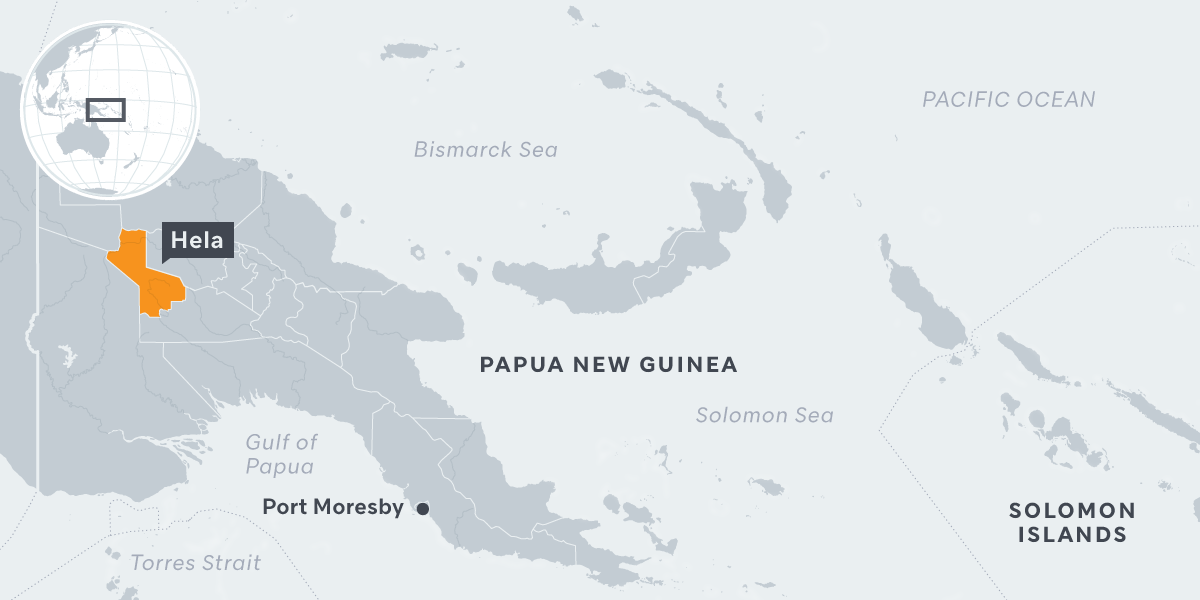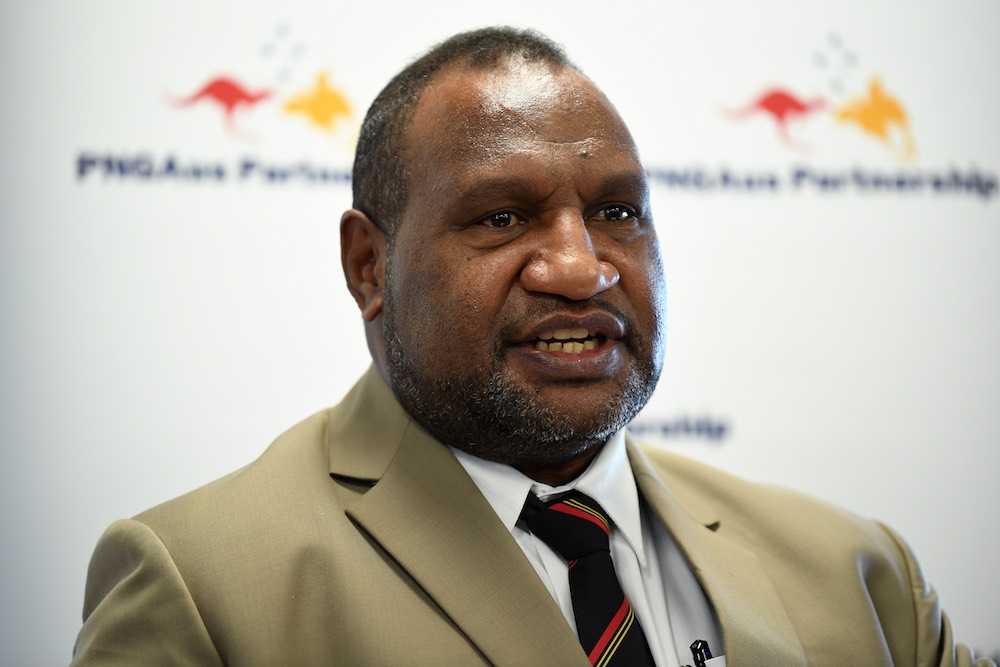WABAG - If there is one thing Enga governor Sir Peter Ipatas wants to see happen in Enga Province, it is to see his people prosper in a peaceful environment.
He would like many tourists to come annually to events like this Friday’s Enga Cultural Show or to major sporting events like the recent rugby match between Easts Tigers and PNG Hunters in the Queensland Intrust Super Cup completion.
The promotion of tourism is now one of the major policies of the Enga Provincial Government and it aims to promote peace in the province and enable the people to tap into the lucrative tourism industry.
Governor Ipatas has personally involved himself in bringing in visitors like birdwatchers and people who wanted to see how traditional salt was made at Mulisos Yokonda Salt ponds near Sirunki.
He said one reason why he was forced to resign from Peter O’Neill’s PNC-led government three months ago was because he felt the government was not seriously promoting peace in the country by addressing the dire law and order situation.
Now, he is satisfied that prime minister James Marape has appointed a most capable police minister in Bryan Kramer who he believes will transform the police force to support the new government’s pledge to take back PNG.
Sir Peter shocked many people when he joined an unprecedented exodus of resigning members and senior ministers especially as many impact projects had been established in Enga by the O’Neil – Abel government.
Among these multi-million kina projects were the Enga College of Nursing, Enga Provincial Hospital, Sirunki Agro Project, Wapenamanda Airport, Tsak Road, Philikambi Sub-district office, Tuition Free Education policy and the upgrading of the Togoba – Wabag road.
O’Neill had regularly visited Enga to officiate at groundbreaking ceremonies or to open completed projects like the main administration building at Enga Teachers College which was named after him.
“Yes, O’Neill’s service to Enga was A1 but I resigned to take back PNG and promote peace and unity in my province,” Sir Peter told an enthusiastic crowd of over 500 UPNG Enga students in May, a couple days before Marape was elected the eighth prime minister of PNG.
“Enga is a volatile province where law and order should be the number one priority of any government.
“Many people die every year in gun battles, cold blooded killings, armed hold-ups and other serious crime which impeded development.
“Any government can build multibillion kina projects but if underlying social problems like law and order was not tackled head on, the reality is that these projects can be reduced to ashes and the funds and time spent becomes wasted effort,’ Ipatas said.
He said the Royal PNG Police Constabulary was weak, under-resourced and the police personal poorly trained to conduct proper investigations to track down criminals and effectively prosecute the perpetrators.
Even as he was speaking in Port Moresby, the Highlands Lutheran International School, one of Enga’s iconic educational institutions was smoldering in ruins after a series of arson attacks perpetrated by unknown arsonists.
On 5 May, the school lost a classroom in a fire believed to be deliberately lit by arsonists.
Two days later on 7 May, the principal's residence was burnt down at 2.30 am. The principal and her children who were fast asleep at that hour were rescued unhurt but in total shock.
After that on 14 May, the girls’ dormitory was set ablaze at midday.
Boarding students from the Enga Teachers College who also resided there lost everything they owned and left only with the clothing they wore and the books and pens they held in their hands.
Last year on 16 October, the school lost the main office complex, adjourning classrooms and the library was razed by a fire
It is very hard to put a monetary figure to all the destruction incurred by the school.
Ipatas was concerned that not one single suspect was ever arrested by police.
He said he had to make a move to install a new government to save PNG from total disaster, safeguard the livelihood of ordinary people and secure the future of all students as future leaders of PNG.
“If elected leaders did nothing to take back PNG from corporate theft, poor governance tribal warfare and deep rooted corruption than PNG as we know it will never be the same,” he said
Ipatas said O’Neill had chronically failed to listen to his advice on how to address serious national issues like law and order so prevalent in the country.
He said two years ago, he had advised O’Neill to make formal requests to the Australian government so their federal police could come and help us control the escalating law and order situation in the country.
He claimed our own police wanted allowances first before they could do anything and were of no help in the fight against crime.
Ipatas felt his 21 years of hard work in building infrastructure and other developments in Enga would go down in one day of tribal warfare in which people used high-powered guns to kill each other and destroy property.
Last year, police did not arrest any suspect in a tribal war which saw over 10 men killed and destruction to property worth millions of kina which occurred right in the heart of Kandep town.
The Enga Provincial Government allocated enough funds but the police had failed miserably to make any arrests – the cause of which was over a woman who had been seeing two men.
“Who in PNG will fix our law and order problems if we politicians turn a blind eye on the biggest threat to development and peace – law and order. We do not have freedom so we have to address this issue and allow our people to live peacefully,” Ipatas said.
Sir Peter has been a politician all his life – 18 years in local level government and 22 years in provincial and national level politics.
He has the experience to clearly see that law and problems can very easily wipe out everything the government or individuals have accomplished.
He said one way to safeguard lives and properties was to ensure government departments like police and statutory bodies like the Ombudsman Commission were allowed to operate independently free from political influence.
The government will have to strengthen these institutions by allocating more funds and resources to enable them to effectively uphold the rule of law.
“I am happy I played a part to install the new Marape- Davis government which already seems to be wining the confidence of the people,” he said.
“I know Enga will gradually change. More visitors will come when there is peace and unity among the people.”






